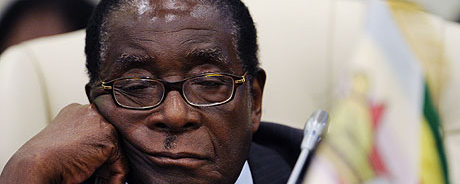
MDC leader Welshman Ncube yesterday hit back at President Robert Mugabe for labeling him a tribalist saying the Zanu PF leader has no moral right to do so because of his role in the Gukurahundi massacres.
STAFF REPORTER
Addressing thousands of MDC supporters at Siachilaba business centre in Binga at the launch of the party’s manifesto for the July 31 elections, Ncube said Mugabe had become a liability to Zimbabwe.
“Mugabe has the nerve to call me a tribalist yet he killed more than 20 000 people,” the Industry and Commerce minister said. “All Mugabe does is dose off every five minutes in Cabinet.”
The Zanu PF leader has refused to apologise for the Gukurahundi massacres in Matabeleland and the Midlands soon after independence.
In an interview with Dali Tambo, which was aired on SABC recently, Mugabe blamed the killings on soldiers who ignored instructions.
But former Vice-President Joshua Nkomo in his book The Story of My Life blames Mugabe for the massacres saying it was a way of getting rid of Zapu and its leaders.
Ncube also took a dig at Prime Minister Morgan Tsvangirai saying the MDC-T leader was not different from Mugabe. “Mugabe is not Team Zimbabwe, Morgan is not Team Zimbabwe. I am the only Team Zimbabwe,” he said. The former united MDC secretary-general said his party’s manifesto was anchored on devolution of power, which he said would ensure that marginilised areas such as Binga would benefit from their resources.
- Chamisa under fire over US$120K donation
- Mavhunga puts DeMbare into Chibuku quarterfinals
- Pension funds bet on Cabora Bassa oilfields
- Councils defy govt fire tender directive
Keep Reading
“First thing we will do once in the government is to replace the central system of governance with a devolved system,” Ncube said.
“It is not by accident that we launch it (manifesto) in Binga. It is by design and we want to make a statement by it.” He said Binga had a lot of natural resources being exploited by outsiders while locals remained poor.
Ncube said Zimbabwe’s economic woes could be traced to the country’s centralised system of governance.










